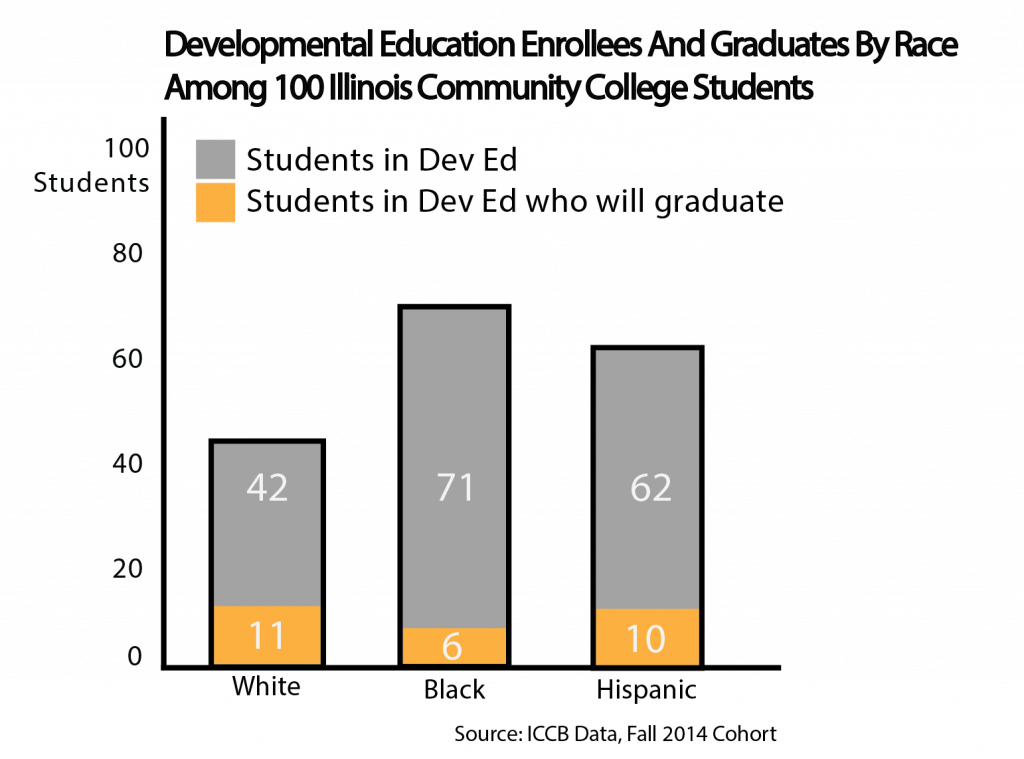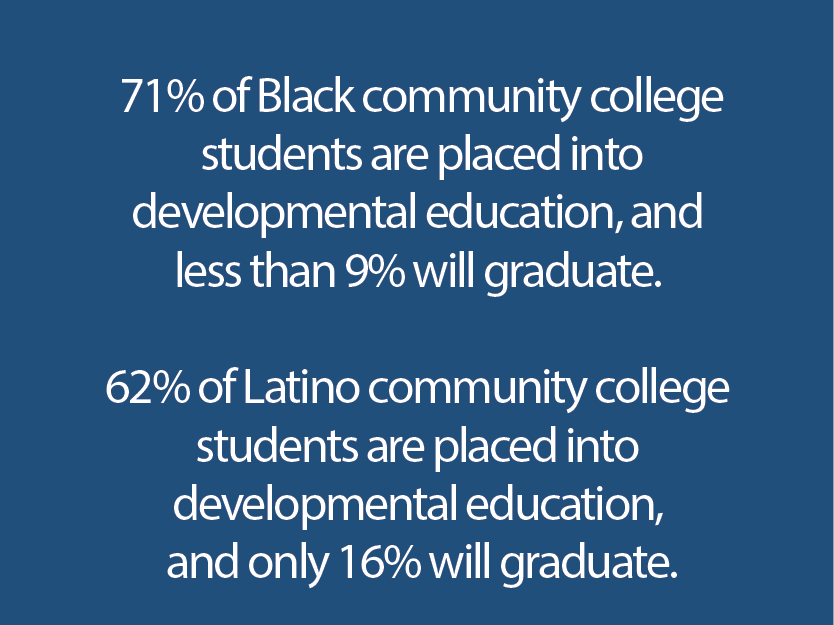Developmental education was intended to be a pathway to college-level coursework. For most students, it has become a dead end.

Over-Placement
Nearly 40% of Illinois’ high school graduates who enroll in community colleges are placed into developmental education in at least one subject and many don’t need it.

Time and Cost
Every year students attempt more than 400,000 developmental education credit hours, costing them and the state millions of dollars while rarely counting toward a degree.

Under-Completion
According to ICCB data, only 19% of Illinois community college students placed in developmental education will complete their degrees.
Current developmental education practices and policies contribute to racial inequity in higher education


Barriers to Success
Placement
Traditional placement practices, like using high-stakes placement exams and standardized tests, disproportionately place Black and Latinx students in developmental education courses.
Traditional Developmental Education
Traditional developmental education models place students in stand-alone courses that cost students time and money but don’t count as college credit. Most students placed in these ineffectual models are not able to proceed into credit-bearing coursework and won’t go on to earn a degree.
Strategies to improve developmental education in Illinois
Implement Multiple Measures for Placement
Colleges and universities will look at a student’s full capability through multiple stand-alone measures, including high school GPA to place more students correctly and directly into college-level classes.
Scale Co-Requisite Support Models
Colleges and universities will accelerate learning for students who truly need developmental education by using evidence-based co-requisite support models that could help roughly 4,000 more student complete college-level math and 6,000 more students complete college-level English each year.
Improve Data Collection and Transparency
To better inform policy and practice, Illinois should collect and report disaggregated developmental education placement, enrollment, and success metrics by institution. Similarly, institutions should publicly report developmental education placement criteria, enrollment data, and outcomes to help prospective students make more informed enrollment decisions.
Recent PCC-Supported Legislative Action
Developmental Education Advisory Council
The SJR 41 advisory council created an inventory and analysis of current developmental education models and developed a plan for scaling reforms statewide.
Developmental Education Reform Act
Developmental Education Reform Act, passed during the 102nd General Assembly’s historic lame duck session, requires colleges to implement more effective developmental education placement measures and requires all public institutions to develop a plan to scale models of developmental education that maximize student success. See our fact sheet, here.

